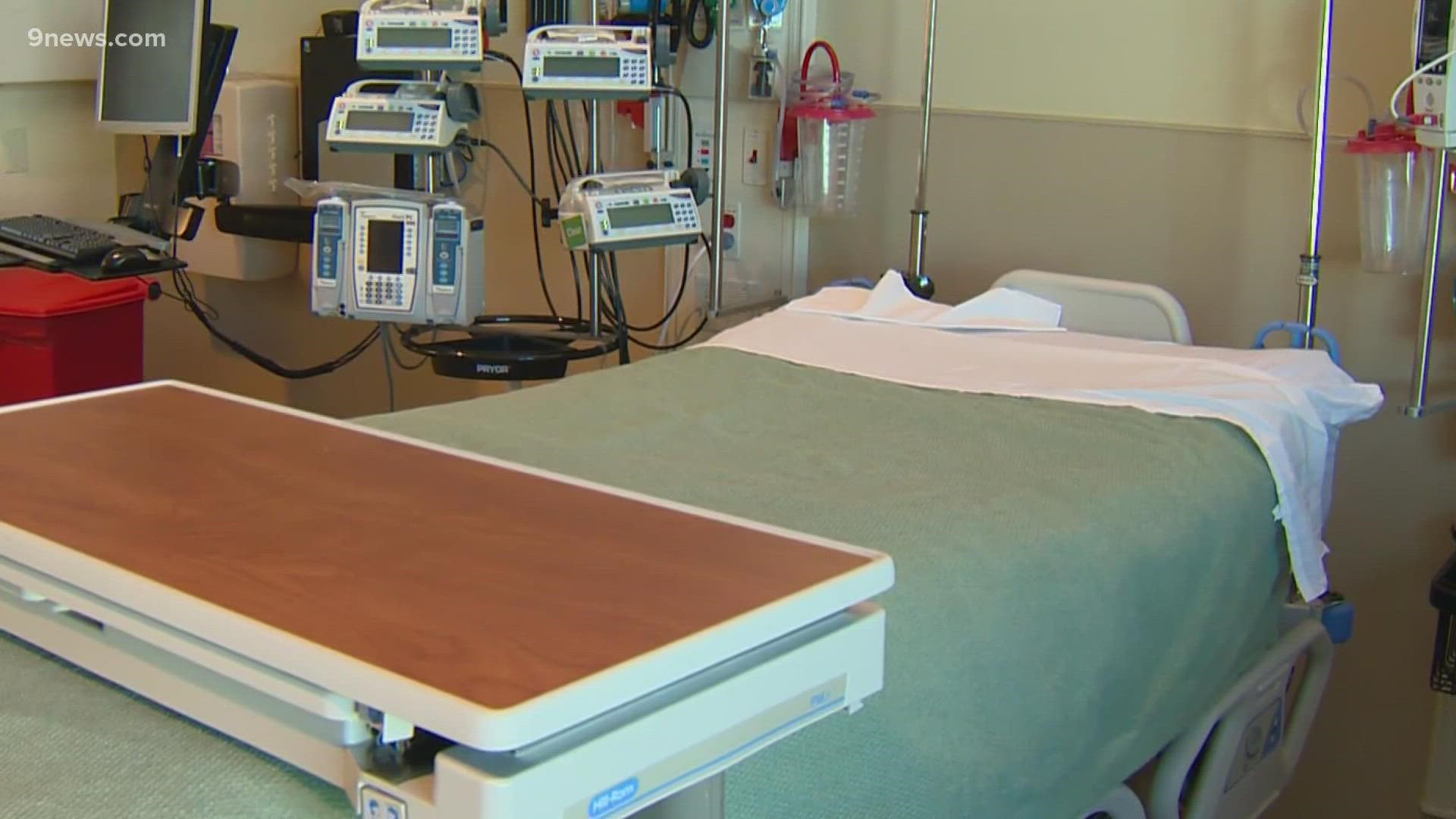DENVER — Discussions about hospital capacity and trying to avoid straining the health care system have been some of the few constants throughout the COVID-19 pandemic.
The number of hospital beds in Colorado is lower than other states when adjusted for the population, and lower across the United States compared to other developed countries. It seems odd, since we are big spenders on health care. Here's a look at why.
What are the numbers in Colorado?
There are many factors when it comes to judging healthcare, so let's level the playing field by looking at the number of hospital beds per 1,000 people.
Colorado ranks 45th on the list, according to Kaiser Family Foundation that focuses on national health issues.
The Colorado Hospital Association (CHA) said that stat has been declining since 1999, as more people are getting outpatient care versus staying in hospitals. There are also more options to receive outpatient care with medical and technological advances.
"More and more health care is delivered in outpatient settings (or others care delivery – like telehealth), and so the care delivered in hospitals will be the most acute care on the spectrum. This will lead to fewer total inpatient beds, but may lead to an increase in other measurable areas, like average length of stay, total cost, etc.," CHA said to 9NEWS.
US Numbers
While Colorado's numbers are lower than other states, the U.S. is following the same pattern. Dr. Ricardo Gonzalez-Fisher, a surgical oncologist and professor at at Metropolitan State University of Denver, broke down the numbers.
"The U.S. spends more on health care than any other nation in the world," he said.
He said it's close to 17% of the gross domestic product, nearly double the spending compared to other developed countries.
When it comes to hospital beds per 1,000 people, the U.S. falls below the average.
"The average for the OECD (Organization for Economic Co-operation and Development) is 4.4. The U.S. is under 3, which is below the average even if we are spending double," said Gonzalez-Fisher.
A viewer asked how this is possible, especially during a pandemic, when the United States spends so much.
Gonzalez- Fisher said it's a long and complicated answer that involves the tangled web that is insurance companies, pharmaceutical companies and hospital systems.
Another factor, like we're seeing in Colorado, is health care systems are trying to strike a balance between meeting needs and what makes financial sense.
Other factors
Gonzalez-Fisher said there is more to consider than just beds in terms of health care. Colorado is ranked highly for quality of care and preventative care, but access to care is still a work in progress.
When asked if the number of beds per 1,000 people was a missed opportunity to be better prepared for COVID. CHA wrote:
"Obviously the pandemic stretched all health care systems to levels that were beyond anything we had seen or imagined (at least in the last 100 years). While we're built to surge for a short amount of time (e.g., flu season), I don't know that we could have guessed that we would be stretched and surging for 2+ years.
I would also say that Colorado faired well compared to many other states when it came to hospital response. While we activated Crisis Standards of Care for staffing and EMS (and earlier for PPE), we never had to activate hospital care Crisis Standards, as some other states did (e.g., Idaho, New Mexico, Alaska).
So while our bed counts adjusted for population are low compared to others in the U.S., we were able to maximize every bed in the system during this response (with the help of our patient transfer program, hospital collaboration, and more) to deliver care to high levels of COVID-19 and non-COVID patients, especially this fall/winter.
And certainly as COVID-19 moves to endemic, our hospitals and health systems will be working diligently to understand all aspects of our response – what worked, what could have been managed better, and what we need to learn for whatever the next challenge may be."
RELATED: Denver lets mask mandate expire
SUGGESTED VIDEOS: Full Episodes of Next with Kyle Clark

